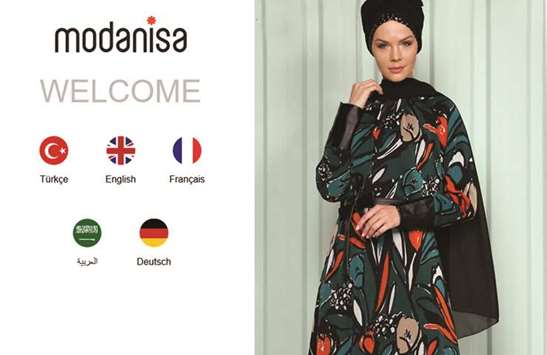The fact that e-commerce and online transactions have become a part of life for consumers and Corps across the globe and thus also in Muslim countries, many scholars have started to muse about the halal aspect of computer-based businesses. Even more so, since issues of Shariah compliance, legality and acceptability of e-commerce in Islam are crucial for Muslim entrepreneurs and start-ups whose number has been growing substantially over the past years. That said, a clear understanding and promotion of halal e-commerce would certainly let them benefit in their endeavours and also establish trust among Muslim consumers.
Muslims around the world spent more than $107bn on Internet shopping, according to latest available data from the State of the Global Islamic Economy 2015/16 report by Thomson Reuters. This represented close to 6% of the total digital economy, which is valued at roughly $2tn.
The Islamic digital economy is expected to reach revenues of more than $270bn by 2020, growing an average of 17% annually, whereby top countries for Muslim e-commerce spending are Turkey, the US, Malaysia, Egypt and Indonesia and the most prominent sectors are the sharing economy, social commerce, retail e-commerce including consumer goods and fashion, services such as halal travel and halal food delivery, as well as Islamic finance investment products.
Thomson Reuters described halal e-commerce even as one of the presently most disruptive elements within the Islamic economy, naming large and already established online retailers such as Souq.com in the UAE, Aladdin Street and Zilzar in Malaysia, Modanisa in Turkey and Hijup in Indonesia as examples.
But in how far can e-commerce be halal? The main two issues for halal online businesses are the type of contract a buyer and a seller are agreeing on and the type of payment that is done for a transaction. According to most Muslim scholars, there are — in general — four pillars of a contract that must be fulfilled, which are offer (ijab) and acceptance (qabul), two contracting parties, subject matter and the mode of expression (sighah). In other words, for an e-commerce transaction to become halal, an offer has to made by the first party on the Internet.
Then, the second party is given the freedom of acceptance to enter into the contract. The offer and acceptance must be clear and confirmed by both parties. The subject matter — the product or service — must be beneficial and lawful in Islam, valuable, under possession, in existence and deliverable.
Lastly, the mode of expression by both parties should be clear and it should be through words or act (e.g. mouse click), digital signature or in writing. Halal e-commerce has to be free from gharar, whereas the term gharar refers to uncertainty. Thus, Islamic e-businesses have to ensure that business transactions are clean and free from ambiguity of any form.
Regarding online payments, their mode must be clearly stated and they of course have to be interest-free if deferred, particularly if credit cards are being used. There are certain aspects for the use of credit cards in Islamic finance, particularly when credit card debt is not paid on time and fees (interest) start running up, but a number of banks are already offering halal credit cards to avoid this problem. A more complex issue is the use of cryptocurrencies for online transaction, since there is no clear position yet as to whether they are Shariah-compliant or not.
While setting the standards for Shariah-compliant online businesses can be complicated due to the differing views of scholars in various Muslim jurisdictions, there have been efforts to introduce such standards. For example, the Accounting and Auditing Organisation for Islamic Finance Institutions (AAOIFI), a respected non-profit organisation to maintain and promote Shariah standards in finance based in Bahrain, has provided solutions to facilitate e-commerce through e-banking and electronic money transfers.
For example, those standards include regulations for how to deal with money matters in an online business and how to set up financial contracts on the Internet by chat or e-mail or by accessing payment websites, all under the preconditions that there are no objectionable materials or services being used and every transaction and process is fully Shariah-compliant.
In a nutshell, Islam encourages e-commerce as a new way of doing business for a growing number of Internet users in the Muslim world and in the view that e-commerce has begun to play a substantial role in global trade, given the enormous growth and scope conventional e-commerce businesses such as Amazon or Alibaba have reached.
But still, Muslim businessmen or businesswomen — and also their customers — can be challenged by strictly following the Islamic principles of conducting e-business, and particularly Muslim entrepreneurs and start-ups have to be aware of the fact that conventional e-business is mainly based on rationality, while halal e-business is primarily based on morality and ethics of the Islamic economy and Islamic finance ecosystem.
“Conducting Islamic e-business indeed requires a substantial amount of commitment to understand in detail the process of performing business electronically and combine it with Islamic ethics. Otherwise, the system will be under-used,” says Hanudin Amin, lecturer on Islamic finance and e-banking at the Labuan School of International Business and Finance, a branch of the University of Malaysia.
“As such, full awareness is required as to how Islamic e-business represents the practice of performing and coordinating critical business processes through the use of computer and other technologies to better reflect the Islamic point of view. Having achieved that, the benefit will be greater to Muslim e-businesses as it elevates their competitive advantage,” he adds.

An image of Modanisa, a popular Turkish online shopping platform for halal fashion. Halal fashion has become a core segment of the halal retail e-commerce business.
